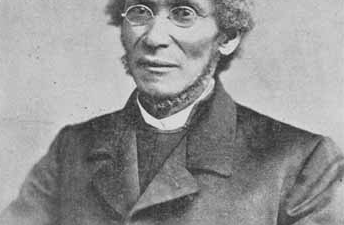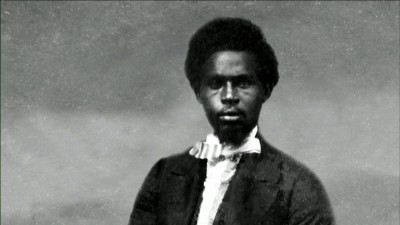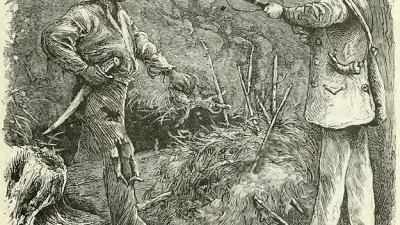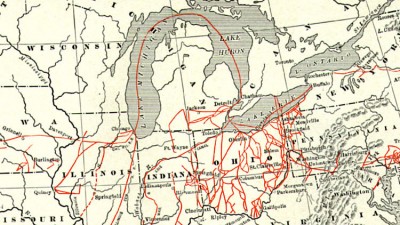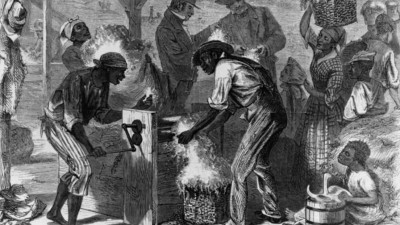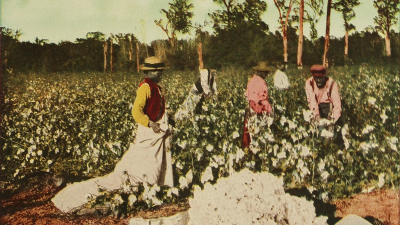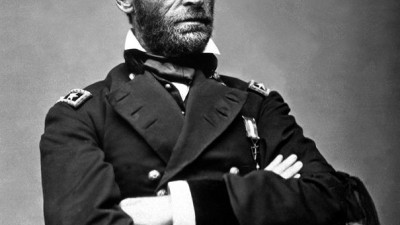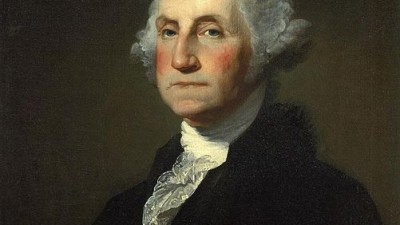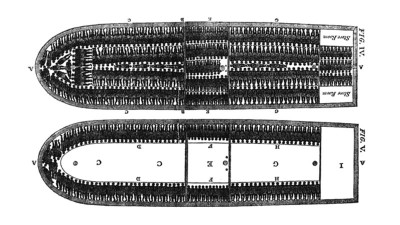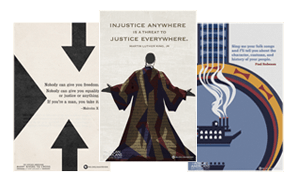TAG: slavery
’12 Years a Slave’: Trek From Slave to Screen
As a literary scholar and cultural historian who has spent a lifetime searching out African Americans’ lost, forgotten and otherwise unheralded tales, I was honored to serve as a historical consultant on Steve McQueen’s 12 Years a Slave, most certainly one of the most vivid and authentic portrayals of slavery ever captured in a feature film. Continue reading
Free Blacks Lived in the North, Right?
Most of us know that before the American Civil War there were so-called slave states and free states. Knowing this, our minds fill in the map with logic. If such a line as “Mason-Dixon” existed (actually, there were a series of lines drawn by “compromising” Congresses throughout the first half of the 19th century), slaves must have resided below it and free black people above it, with every man, woman and child in chains trying to escape to the North just as soon as they could — following the proverbial North Star to a new life of unbounded opportunity — while those already up there remained vigilant against being kidnapped back into slavery down in the South. Continue reading
Which Slave Sailed Himself to Freedom?
Just before dawn on May 13, 1862, Robert Smalls and a crew composed of fellow slaves, in the absence of the white captain and his two mates, slipped a cotton steamer off the dock, picked up family members at a rendezvous point, then slowly navigated their way through the harbor. Smalls, doubling as the captain, even donning the captain’s wide-brimmed straw hat to help to hide his face, responded with the proper coded signals at two Confederate checkpoints, including at Fort Sumter itself, and other defense positions. Cleared, Smalls sailed into the open seas. Once outside of Confederate waters, he had his crew raise a white flag and surrendered his ship to the blockading Union fleet. Continue reading
Did African-American Slaves Rebel?
One of the most pernicious allegations made against the African-American people was that our slave ancestors were either exceptionally “docile” or “content and loyal,” thus explaining their purported failure to rebel extensively. Some even compare enslaved Americans to their brothers and sisters in Brazil, Cuba, Suriname and Haiti, the last of whom defeated the most powerful army in the world, Napoleon’s army, becoming the first slaves in history to successfully strike a blow for their own freedom. Continue reading
Who Really Ran the Underground Railroad?
Few institutions from the black past have attracted more attention recently from teachers, students, museum curators and the tourism industry than the Underground Railroad, one of the most venerable and philanthropic innovations in our ancestors’ long and dreadful history in human bondage. But in the zeal to tell the story of this great institution, legend and lore have sometimes overwhelmed historical facts. Continue reading
Why Was Cotton ‘King’?
Cotton was one of the world’s first luxury commodities, after sugar and tobacco, and was also the commodity whose production most dramatically turned millions of black human beings in the United States themselves into commodities. Cotton became the first mass consumer commodity. Continue reading
What Was the Second Middle Passage?
Thanks to the Trans-Atlantic Slave Trade Database, edited by David Eltis and David Richardson, we know that about 388,000 Africans were transported directly to the United States over the course of the slave trade, which ended officially in 1808. This brutally cruel and disruptive phase of the trade, as all American schoolchildren should be taught, is known as “the Middle Passage.” But what is often left out of many survey courses is the second Middle Passage, and that dark chapter in American history involved far more black people than were taken from Africa to the United States. It was also uniquely cruel and brutally destructive. And it unfolded during the era when cotton was “king.” Continue reading
The Truth Behind ’40 Acres and a Mule’
We’ve all heard the story of the “40 acres and a mule” promise to former slaves. It’s a staple of black history lessons, and it’s the name of Spike Lee’s film company. The promise was the first systematic attempt to provide a form of reparations to newly freed slaves, and it was astonishingly radical for its time, proto-socialist in its implications. In fact, such a policy would be radical in any country today: the federal government’s massive confiscation of private property — some 400,000 acres — formerly owned by Confederate land owners, and its methodical redistribution to former black slaves. What most of us haven’t heard is that the idea really was generated by black leaders themselves. Continue reading
George Washington’s Runaway Slave, Harry
Of our first five presidents, four owned slaves. Thomas Jefferson’s slave-owning legacy has been covered in the news lately; however, the biggest slave owner among the four men was the father of our country, George Washington. Continue reading
How Many Slaves Landed in the U.S.?
Perhaps you, like me, were raised essentially to think of the slave experience primarily in terms of our black ancestors here in the United States. In other words, slavery was primarily about us, right, from Crispus Attucks and Phillis Wheatley, Benjamin Banneker and Richard Allen, all the way to Harriet Tubman, Sojourner Truth and Frederick Douglass. Think of this as an instance of what we might think of as African-American exceptionalism. (In other words, if it’s in “the black Experience,” it’s got to be about black Americans.) Well, think again. Continue reading
Find educational resources related to this program - and access to thousands of curriculum-targeted digital resources for the classroom at PBS LearningMedia.
Visit PBS Learning Media


